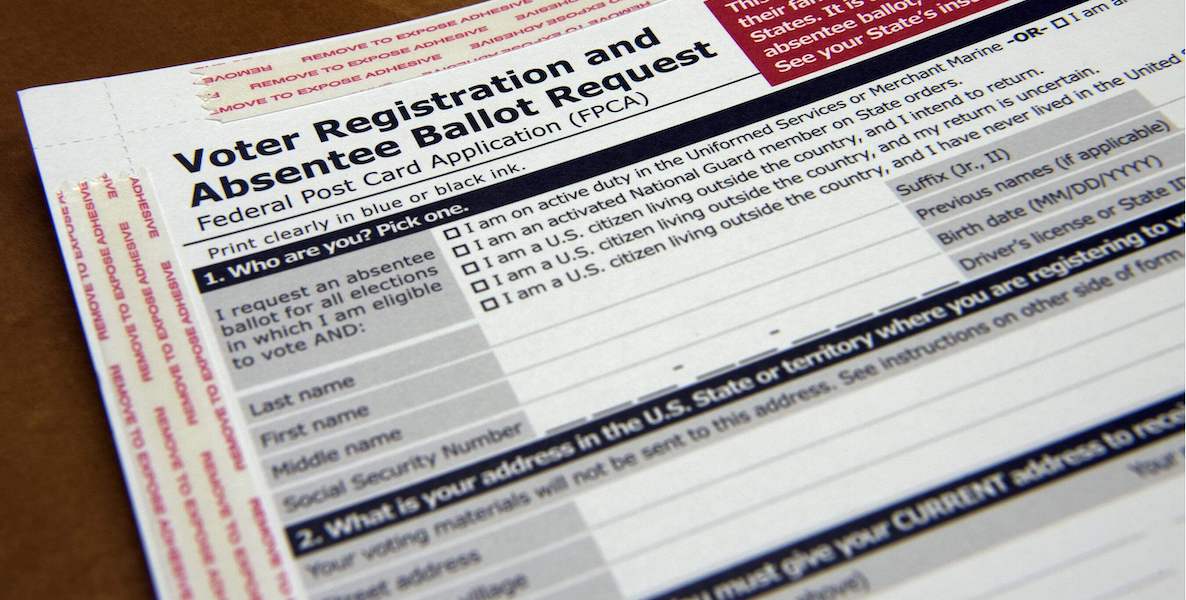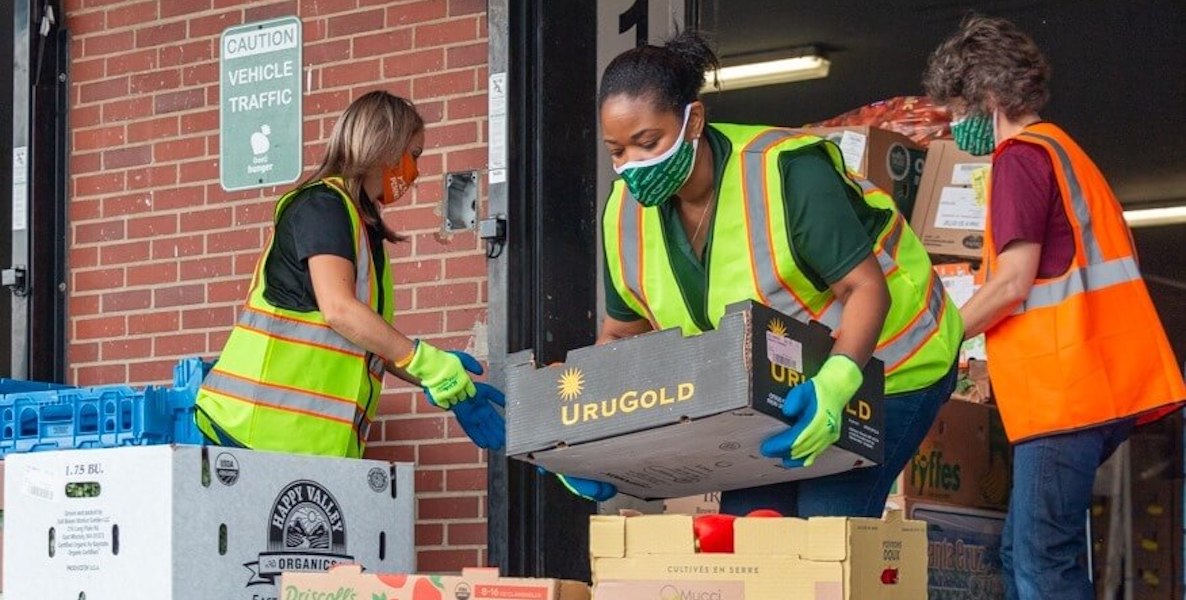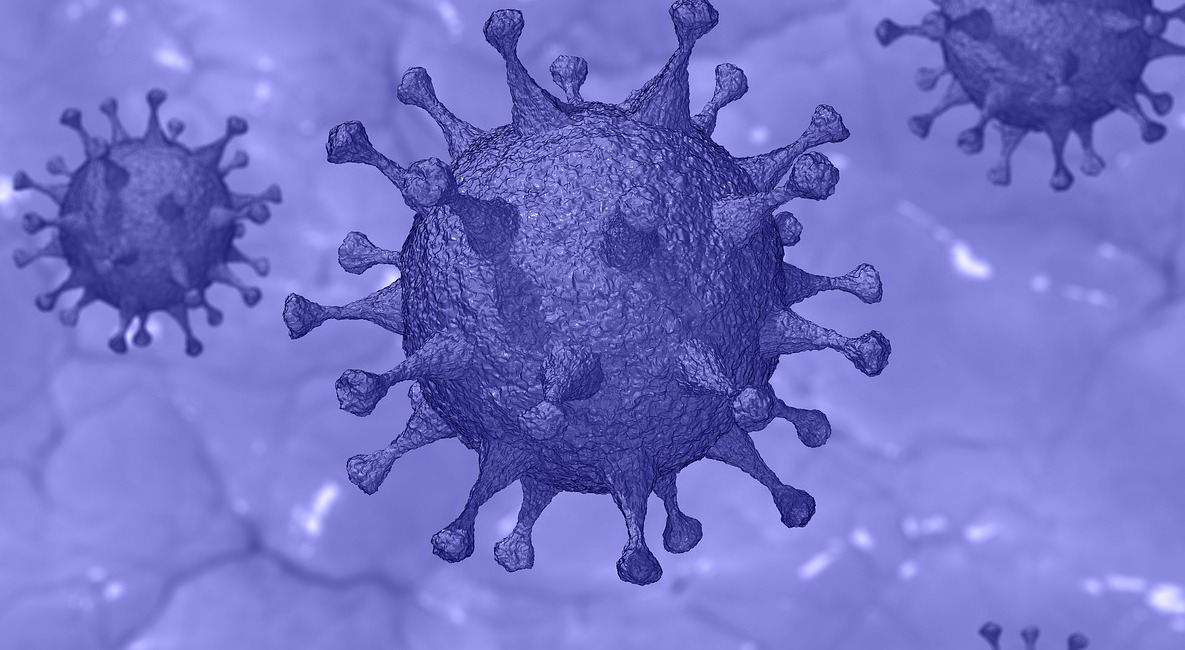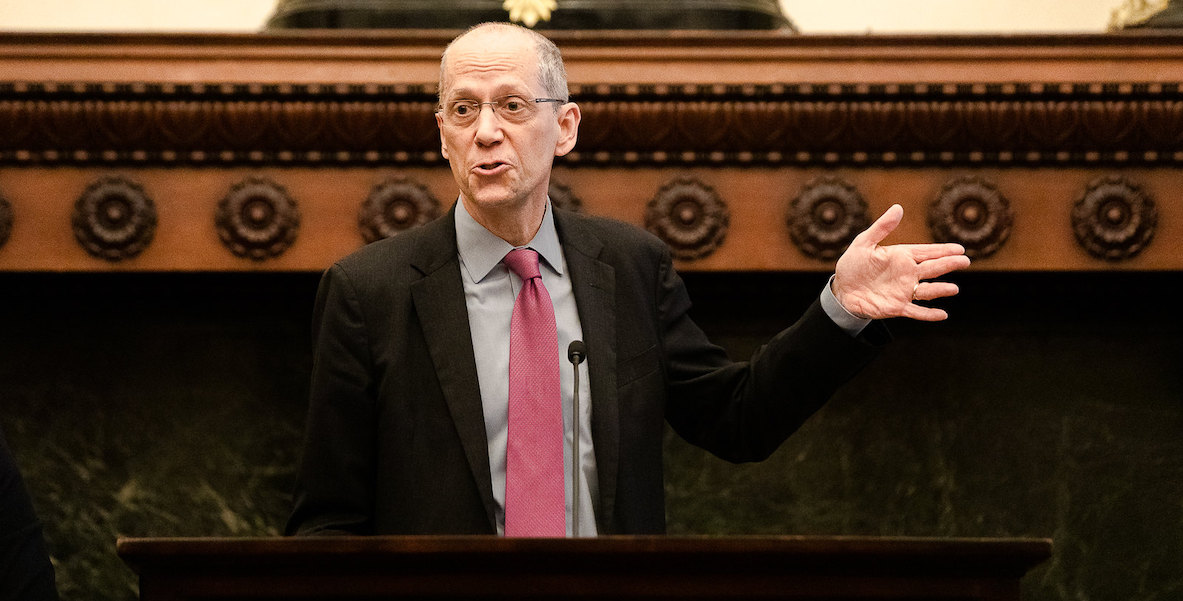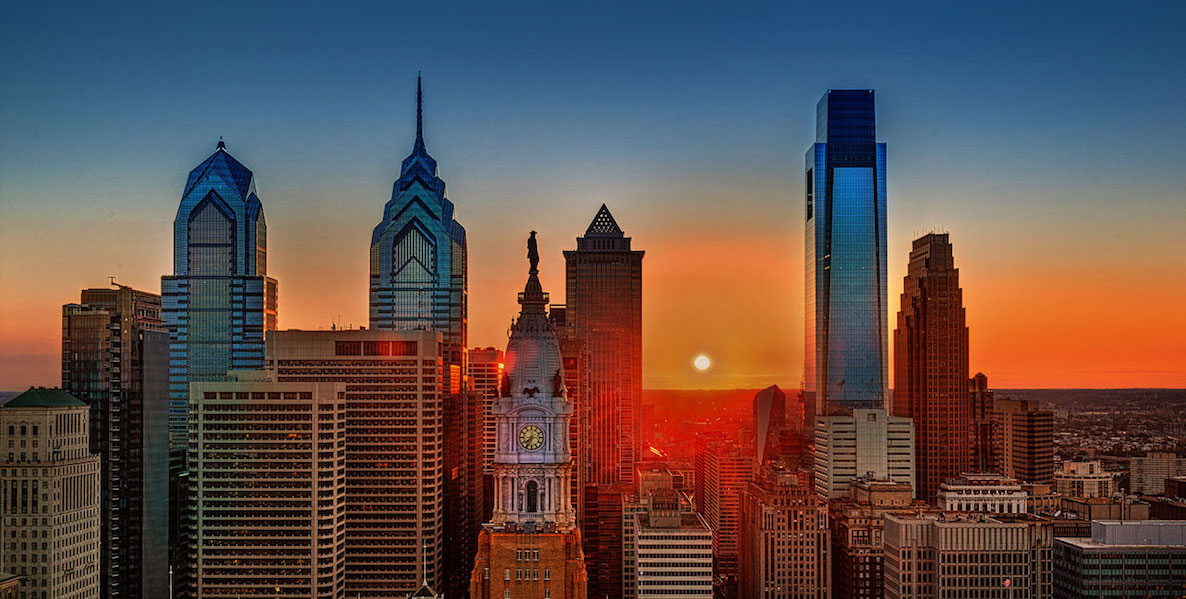It was only a matter of time before coronavirus hit Philly, or any major Eastern seaboard big city for that matter. There are tons of questions as to how much or how bad it will hit, that’s still an unknown.
![]() But, what we can safely say is that Philly won’t do what it did, being hard-headed Philly, back in 1918: allow life to go on so much that city officials let a massive open-air parade with 200,000 onlookers proceed during that year’s near-apocalyptic influenza pandemic.
But, what we can safely say is that Philly won’t do what it did, being hard-headed Philly, back in 1918: allow life to go on so much that city officials let a massive open-air parade with 200,000 onlookers proceed during that year’s near-apocalyptic influenza pandemic.
The result was more than 12,000 Philadelphians dead from flu — an avoidable outcome had politicians at the time been more concerned about public health than normalcy.
St. Louis, in contrast, knew better and prevented such a catastrophe.
Fast forward more than 100 years later and we’re in a different place and mindset. Societies, while not perfect, are much more aware of and technologically prepared for pandemics in ways once unimaginable.
City Hall seems aware of that: There was the first dramatic step when the Mayor’s Office nudged the slightly stubborn St. Patrick’s Day parade organizers that maybe an open-air, crowded event in Center City wasn’t a good idea right now.
Soon, it was escalating into City Council’s dramatic emergency protocols last Thursday as seating was modified to maintain “social distance,” with every other public chair wearing a taped “Please Do Not Sit in This Chair” flyer that took on an eerily dystopian look while Council business ensued.
By Friday, all Philadelphia Schools were shut down for two weeks—a domino prompted by too many teachers who live in suburban Montgomery County not coming in—followed on Saturday by a plan for free breakfast and lunch pickup spots for those students who need it.
And the Mayor moved relatively fast with an $85-million emergency funding request from Council for relief, the scope of which no one has a full understanding of yet. Still, Philly is doing what cities should do and will predictably do in a situation like this to buffer themselves as much as possible.
The Philadelphia Department of Public Health is issuing the standard messaging ![]() and FAQ toolkit (although, personally and professionally, I would’ve gone with phila.gov/coronavirus versus phila.gov/COVID-19 because the former is what will immediately come to mind for those not as familiar with the clinical term).
and FAQ toolkit (although, personally and professionally, I would’ve gone with phila.gov/coronavirus versus phila.gov/COVID-19 because the former is what will immediately come to mind for those not as familiar with the clinical term).
Yet, while one has to appreciate the “keep calm” and clinical approach of Health Commissioner Thomas Farley, one also has to worry that it’s too pedantic and, sometimes, robotic in a situation like this. Residents will want to know their city’s chief doctor feels what they’re feeling.
Look to Dr. Ivan Walks’ almost flawless communications performance during the 2001 Anthrax attack in Washington, D.C., for a template, and West Nile Virus soon after. I was part of both crisis communications response teams at the time, as the District of Columbia, naturally, found itself in the position of regional “DMV” or D.C., Maryland and Virginia leader.
The perfect recipe was relentless communication and giving the public, at all times, confidence through not just transparency but a constant, soothing, trustworthy voice. We moved and talked tirelessly because earning public trust contains panic. In events like these, the citywide conversation has to be as intimate and fireside-chatty as you can make it; the Health Commissioner will need to stay on a steady media circuit and be as visible to the larger public eye as possible. It must be a communications marathon.
The doubts about motive is what happens from a general lack of trust from our leaders. Will students coming back to school in two weeks finally get the basics like clean and fully stocked bathrooms? Will they be able to trust that their health and safety are top of mind?
Every Philly resident, within days, should know their Health Commissioner even more than they know their Mayor. Indeed, in the case of our response in D.C. during unprecedented events where we were, literally, writing the response playbook as we went along, Walks was more than just “Chief Medical Officer” for the city; residents began to know and affectionately refer to him as their doctor.
In a crisis of this magnitude, in a city this big, Farley and the Public Health office will need to transcend their technocracy. Residents will need to know him and trust him as “Dr. Tom.”
Be creative, perhaps even stage situations where the health commissioner walks into random public bathrooms and washes his hands or goes to a subway station to talk to residents about how they should maintain “social distance.” Press releases and tweets won’t be enough.
Daily PSAs on all radio and television must go out. Residents want competence, but they also want emotional authenticity. The more that’s achieved, the better off the city and the less risk of social instability.
The Health Department, and city for that matter, have some catching up to do. After all, it didn’t make much effort to do basic screening of school children since the asbestos-lead-whatever else school closure crisis since last year. Nor has it ever sought to assess the impact of the PES refinery on neighboring resident health, or offered any detailed guidelines on what they could do.
Coronavirus could be an opportunity to revive confidence.
The problem nowadays is that while big cities like Philadelphia are much more equipped today than ever before, race and income disparities—a volatile combination on top of global pandemic—are still set to hamper response efforts.
So, Philadelphia, on paper, might be marking off the boxes for how a city gears up for an emergency event like COVID-19, but, is it really prepared given the already distressed conditions in many of its neighborhoods?
A persistently high poverty rate—with a quarter of city residents struggling in a low-income purgatory—becomes a variable that city leaders will have to show they can and are willing to deal with. The challenge is that the broader discourse on coronavirus response has been a rather white middle class conversation: there is a mainstream assumption that all we’ve got to do is shut down schools and telecommute and everything will be just fine. Ignorance, in this respect, looms large along with privilege, because it prevails at the expense of service, retail and frontline medical workers who have no choice but to show up.
In that sense, the economics of coronavirus impact can be as destructive as the health implications. Look at the evolution of debate and conversation in City Council within just one week.
While big cities like Philadelphia are much more equipped today than ever before, race and income disparities—a volatile combination on top of global pandemic—are still set to hamper response efforts.
One Thursday Council session had Councilmember Allan Domb as the lone member introducing a resolution demanding more about the city’s level of preparation for coronavirus: “The City must be ready to handle an influx of testing demands, treatment needs and capacity issues, [and] emergency service preparations.” That seemed lost in the noise of both Mayor’s budget address and protesting residents waving placards against the safe injection site.
The next week, this past Thursday, presented a much more elevated COVID conversation as Councilmembers Kendra Brooks and Helen Gym introduced a pair of resolutions calling on the city to immediately shield residents from the financial impacts. Brooks urged “an action plan to support and protect service and healthcare workers” while Gym wants “to protect residents at risk of eviction or foreclosure and/or at risk of having essential utilities cut off in the event of sudden income loss as a result of work stoppages, illness, and possible quarantine.”
“Not only are service and healthcare workers at a high-risk of contracting the virus because their work requires regular contact with the public, but many can’t afford to have their hours cut or stay home when they are ill,” said Brooks. “They can’t just work from home.”
City leaders and the regional business community will need to pay close attention considering the fragile state of Philadelphia’s large underserved community. It might seem like a hassle to some who don’t want to have that conversation, but these are the populations the city’s economic engines thrive on.
Residents want competence, but they also want emotional authenticity. The more that’s achieved, the better off the city and the less risk of social instability.
Healthcare, according to the Economy League, is the largest sector employer in Philly, at 21.3 percent of jobs, while Retail and hospitality jobs are the second largest source of employment in Philadelphia, accounting for nearly 18.7 percent of the workforce. What happens to those workers when they have to stay home?
That’s just one small example of the disastrous ripple effects of coronavirus quarantines and social distancing measures as residents process what’s next. It was noticeable, during WURD’s most recent City Council LIVE broadcast, how several Councilmembers—including Brooks and Gym—couldn’t give a straight answer on whether the city was in a position to simply enforce or strengthen its existing paid sick leave law. It’s great that Philly is one of nearly 40 cities to have passed such a law, but how good is it if—in a situation like this—City Hall can’t enforce it or the authors can’t explain how it works? Brooks’ legislation, then, could be reinventing the wheel a bit.
And what about the schools? The Mayor and Superintendent Hite both indicated their initial reluctance to close the schools, with Kenney going so far as to say the children are “safer” in school than out of it. A vast majority of the student population is low income. Was the decision to close made for those distressed student families, or for the teachers from a neighboring and much more affluent county who couldn’t make it to work due to self-quarantining? Who is the District thinking about?
These doubts about motive is what happens from a general lack of trust from our leaders. It’s unclear just how much the Philadelphia School District is prepared to help families when schools are closed, or even help contain the situation. So far, the district has largely bungled its response to recent closures and reports of contamination in aging school buildings. It wasn’t even held accountable for that, with Councilmembers yet to bring those crises up since reconvening in January.
For decades, public school building facilities have had a notorious reputation for uncleanliness, from dusty classrooms to unsanitary bathrooms. To this day, there are routine reports of leaky school bathrooms in disrepair and lacking everything from soap to toilet paper … regularly. Whether on social media from local legislators or calls from WURD listeners, including one angered former teacher who described years of fundraising for basics like paper towels and other toiletries, there’s an alarming portrait of many unattended school buildings that are already petri dishes for germs and viruses.
So, how can residents trust the school district now to do what’s right in this case?
Will students coming back to school in two weeks finally get the basics like clean and fully stocked bathrooms? Will they be able to trust that their health and safety are top of mind?
As coronavirus spreads, there’s a real sense of a city without the culturally competent and economically empathetic plan it will need. Cities like Philadelphia need to figure that out soon, because if we don’t, the worst case scenarios will creep up on us fast.
Charles D. Ellison is executive producer and host of “Reality Check,” which airs 11 a.m. to 1 p.m. Monday through Thursday on WURD Radio (96.1FM/900AM). Check out The Citizen’s weekly segment on his show every Wednesday at noon. Ellison is also principal of B|E strategy. Catch him if you can @ellisonreport on Twitter.
Header photo: Jared Piper/PHL Council


